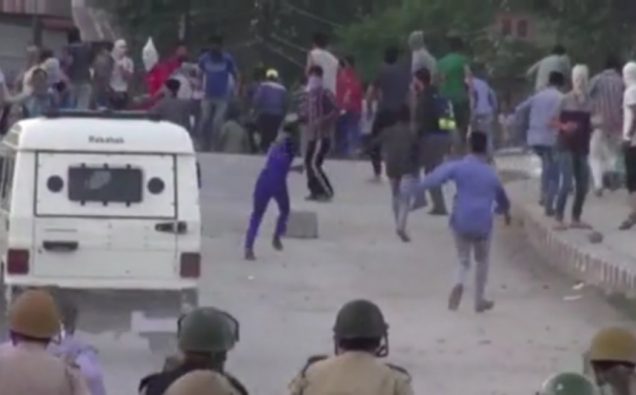
Following Indian army chief’s praise for use of a Kashmiri man as human shield in the disputed territory, a Human rights leader has condemned Gen Bipin Rawat for showing “criminal leadership.”
Executive Director of Human Rights Watch Kenneth Roth used his widely followed twitter account to take Indian army chief to task for suggesting that use of Kashmiris as human shield is “innovation.”
Roth’s denunciation is the latest in a series of statements by human rights leaders including UN leaders that have questioned New Delhi’s inhuman and brutal tactics to stifle civilian protests.
“Indian army chief shows criminal leadership, backing as “innovative” troops’ use of Kashmir man as a human shield,” Roth said in a tweet.
Roth’s tweet was retweeted by followers more 1600 times on the social media platform, reflecting the growing international concern over deteriorating human rights situation in Kashmir, which has been reeling from widespread protests against New Delhi’s rule.
But the Indian army chief showed no regard for any laws or principles as he sought to justify his military’s tactics, calling demonstrations as proxy war.
Gen Rawat awarded a medal of commendation to Major Teetal Gogoi for adopting an “innovation” approach in using the Kashmiri man as a human shield. According to a report published in Indian Express newspaper Rawat said the purpose of awarding Major Gogoi was to boost the morale of Indian troops in the territory, which is a UN-accepted disputed area.
The Human Rights Watch leader Roth had earlier also blasted New Delhi for using brutal tactics against Kashmiri protesters
“Kashmir fighters are vastly diminished but India is responding to mere protesters with similar brutality.”
The Indian tactics of repression in Kashmir – under New Delhi’s control have included unbridled use of pellet guns, which have blinded hundreds of Kashmir young people. The BBC recently ran a story on how the pellet guns have shattered dreams of young Kashmiris.
Last week, the United Nations Human Rights officials had condemned India’s ban on social media as “collective punishment.”
Meanwhile, in South Asia, tensions between India and Pakistan have been soaring as India shows no signs of holding a peace dialogue under ultrantionalist prime minister Narendra Modi. New Delhi often blames Pakistan for the uprising in Kashmir but Islamabad has rejected the charge saying the Kashmiri demonstrations have sprung up spontaneously and totally indigenous.
















